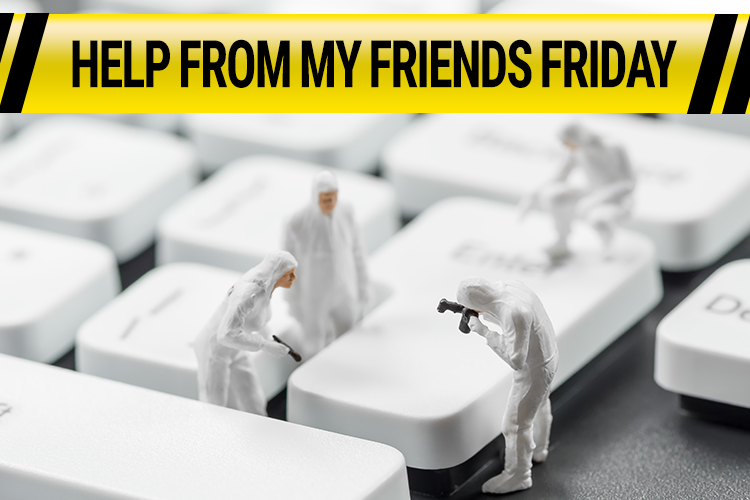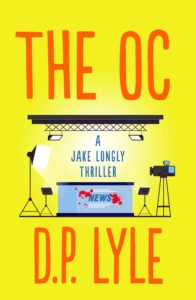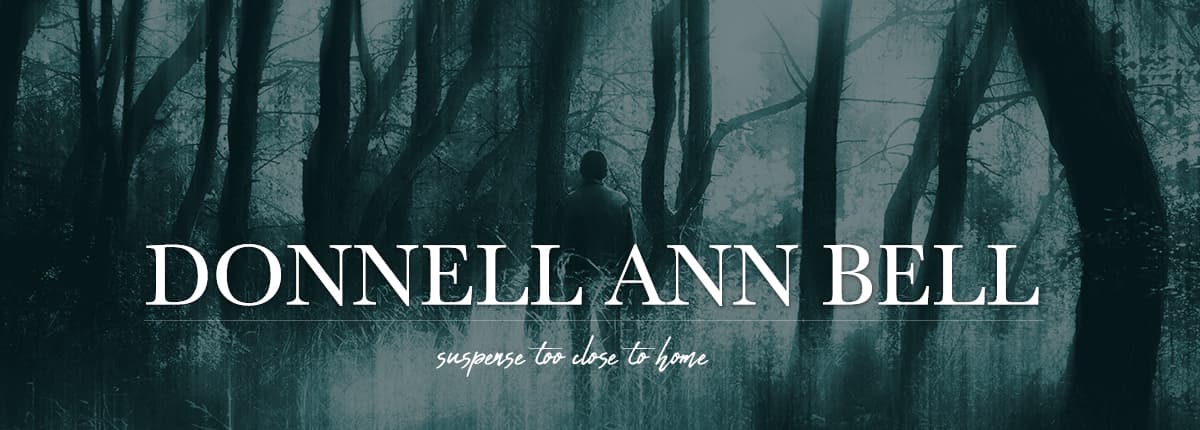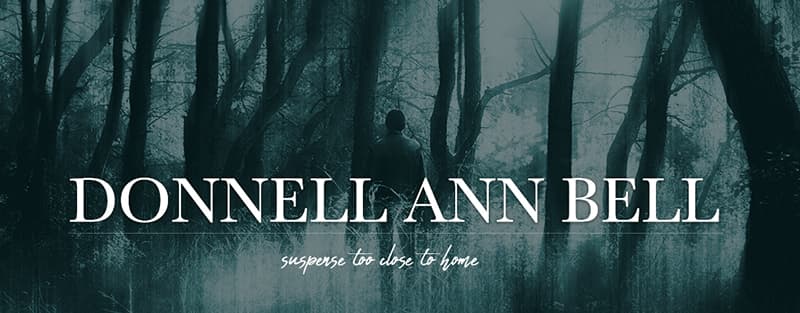
Welcome to my first blog of 2022! My guest today is D. P. Lyle, who writes great books, co-hosts informative podcasts, and is an esteemed forensic and medical consultant in the writing community and beyond. Today, he takes off his scalpel and poison hat to talk about humor. Please welcome D. P. Lyle. ~ Donnell
THRILLING LAUGHS by DP Lyle

Author D.P. Lyle
Laughter is good medicine. It breaks tension. It allows a relieving breath.
Humor in thrillers and crime fiction is not a new concept. It’s been around a long time. The quips of Philip Marlowe, Sam Spade, and Travis McGee are sarcastic, often caustic, but definitely make you smile. These quips and asides deepen the character, and the story, and make reading them much more fun. They also translated well to the big screen. Humor carries well.
And what about James Bond? The master of the humorous aside. After each new Bond movie, the discussions around the water cooler were as much about his quips as they were about the exotic cars, chase scenes, and the “Bond Girls.”
Even the dark, dystopian thriller THE TERMINATOR offered its humor. “I’ll be back,” is forbidding, but also funny. Because we, the audience, know he will indeed be back. After the final high-intensity conflict where the Terminator is beat up and mostly trashed, he says, “I need a vacation.” The audience’s laughter was explosive because this allowed them to release their collective breaths.
The late great Elmore Leonard created characters and situations that would at times make you smile and at other times laugh out loud. The dialog was always colorful and on point for the characters involved. In a discussion about writing and storytelling I once had with him, he said, “Hollywood doesn’t get me.” He went on to explain that the humorous things that his character say aren’t funny to them. It’s simply the way they talk. He said that in the movies, others in the scene will laugh in response, but to the speaker and the listener, in the story Elmore had written, would not find them funny. It would be normal dialog to them. We, the readers, find it funny, but the characters don’t see the humor we see.
and situations that would at times make you smile and at other times laugh out loud. The dialog was always colorful and on point for the characters involved. In a discussion about writing and storytelling I once had with him, he said, “Hollywood doesn’t get me.” He went on to explain that the humorous things that his character say aren’t funny to them. It’s simply the way they talk. He said that in the movies, others in the scene will laugh in response, but to the speaker and the listener, in the story Elmore had written, would not find them funny. It would be normal dialog to them. We, the readers, find it funny, but the characters don’t see the humor we see.
So, humor has been a part of thrillers and crime stories for decades. It breaks the tension and lets the reader take a breath, lower their heart rate, and relax their grip on the book or the theater arm rest. Sort of like the lull as the roller coaster climbs the next elevation. You know something’s coming, but at least you have time to prepare.
For some writers, the humor drives the story. Sure, the crimes and the bad guys and the chase scenes are important, but it’s the humor that makes the narrative flow. Writers like Carl Hiaasen, Tim Maleeny, and Paul Levin use this to great effect. I try to as well.
My Cain/Harper stories are more mainstream thrillers—yet even in these there are small glimpses of humor. My Jake Longly series is lighter and packed with humorous events and dialog driven mostly by Jake’s foibles and his odd take on the world around him.
Which is an important point—-where does the humor in a story come from? For me it’s the combination of the character and the situation—-situational comedy—the SitCom. I grew up with them. Put the character in an odd or stressful situation and then let his or her unique slant on the situation, and indeed the world, determine the action and dialog. It’s what I do with Jake daily.
Humor isn’t easy to write. Why is that? Humor has universal elements, sure, but it’s more personal. What’s funny to one might fall flat for another. Since writing is a solo effort with no audience in sight, the writer never knows whether the story is working or not. This is magnified when writing humor. If you bomb on stage you know it, but sitting at your desk making things up, there is no audience and therefore no way to know whether or not something is funny. It’s sort of like jumping out of a plane and hoping the chute opens.
But it’s fun. For me, humor is everywhere and in everything. Growing up, everyone in my family had a great sense of humor, as did my friends. Laughter was part of life. I grew up on Lucy, Jackie Gleason, Red Skelton, Jack Benny, and others. I loved Martin and Lewis and Tracy and Hepburn.
The most important thing in comedy—-spoken, acted, or written—-is timing. Lucy had it. So did Benny and Johnny Carson. There’s that sweet spot for dropping in the punch line. If dragged out too far, the reader becomes bored and feels things are becoming tedious. If the gag is paid off too quickly, the humor and the point might go by unnoticed. Either way, the impact suffers. Rendering the comedic exchange to that exact moment where the punchline hits hardest isn’t easy.
This timing can be learned, but it’s easier for those to whom comedy comes naturally. I’d like to think that viewing the world through a “lens of funny” and growing up learning from the masters like Lucy and Gleason, have helped me break the code. At least on some level.
The second most important thing is setting up the punchline for maximum effect. A joke or gag is a three-act play. The first sets the premise, the second builds on that premise and adds complications, and finally the twist of the punchline creates the humor.
(Act 1) —A duck waddles into a bar and hops up on a bar stool. “Hey barkeep, I’ll have a beer.”
The bartender says, “We don’t serve beer to ducks in here.” The duck leaves.
(Act 2)—The duck returns the next day and again asks for a beer. The bartender says, “I told you we don’t serve beer to ducks. Now, if you come back, I’m going to nail your bill to the bar.”
The duck leaves.
(Act 3)—The duck returns the next day, hops up on a barstool, and asks the bartender, “You got any nails?”
“No. This is a bar. I don’t have any nails.”
The duck replies, “Good. I’ll have a beer.”
When you’re trying to craft a humorous scene or a bit of dialog exchange, think of this duck. Render the premise just the right amount—-in the end, this is a judgment call—-and then deliver the twist. Even brief exchanges can often be more impactful if an extra beat of dialog is added. Or not. Sometimes short and sweet works best.
If you want to write crime fiction, you must read crime fiction. If you want to write humor, you must likewise read humorous stories. Go on line and find classic TV shows and movies from Hollywood’s Golden Age. I think comedic script writing back then was more on point than a lot of the newer shows, but that’s a personal preference. Still, check them out and analyze the humorous exchanges. Look for the set up, the complications, the beats, the way the punchline works. I think it will help you add humor to any of your stories.
Or as James Bond once said, after skewering a bad guy with a spear gun, “I think he got the point.”
 About the Book:
About the Book:
Jake Longly is hoping for a few weeks of fun with Nicole in the warm Orange County, CA sun—The OC, baby. But they discover that Nicole’s friend Megan Weatherly, a local TV reporter, has picked up an anonymous stalker. As the shadowy man escalates his harassment, Ray and Pancake arrive.
The stalker is no fool, likely has past experience, and manages to cover his trail completely. Suddenly the sunshine and safety of The OC seem more facade than reality. Jake and crew must punch through that facade and dig into the dark world of celebrity stalking. The clock is ticking.
About the Author: DP Lyle is the Amazon #1 Bestselling; Macavity and Benjamin Franklin Award-winning; and Edgar(2), Agatha, Anthony, Shamus, Scribe, and USA Today Best Book(2) Award-nominated author of 22 books, both non-fiction and fiction (the Samantha Cody, Dub Walker, Jake Longly, and Cain/Harper thriller series and the Royal Pains media tie-in series). Along with Jan Burke, he was the co-host of Crime and Science Radio and hosts the podcast series Criminal Mischief. He has served as story consultant to many novelists and the screenwriters of shows such as Law & Order, CSI: Miami, Diagnosis Murder, Monk, Judging Amy, Peacemakers, Cold Case, House, Medium, Women’s Murder Club, 1-800-Missing, The Glades, and Pretty Little Liars.
Website: http://www.dplylemd.com
Blog: http://writersforensicsblog.wordpress.com
Criminal Mischief Podcast Series: http://www.dplylemd.com/criminal-mischief.html
Crime & Science Radio: http://www.dplylemd.com/crime–science-radio.html
Twitter: https://twitter.com/DPLyleMD
FaceBook: https://www.facebook.com/dplylemd
LinkedIN: https://www.linkedin.com/in/dp-lyle-md-5368a816/
GoodReads: https://www.goodreads.com/user/show/4519359-dp-lyle
BookBub: https://www.bookbub.com/profile/d-p-lyle
InstaGram: https://www.instagram.com/dplylemd/











Dr. Lyle, I sure appreciate you being my guest today, and the first topic of the year is priceless. One of my favorite things to do is listen to the old radio spots on Serius XM, Philip Marlow, Johnny Dollar. They have all the old Jack Benny programs as well. I even heard a great suspense starring Agnes Moorehead! And you are so right. They break up the tension with humor, and the timing is spot on. Thanks for such important pointers.
Great start to the New Year. Thank you both.
Thanks for a great post, Donnell and Dr. Lyle! Lots of wisdom here. I need to return to the old radio shows and classic films. A question, D.P. I love witty repartee. I love reading it and I (try to) use it in my own writing. But recently, I read on a blogpost that this kind of dialogue is on the way out. I have no intention of moving away from including it, but I’m wondering if you’ve heard the same thing. And, if so, what are your thoughts?
P.S. Your new book sounds wonderful!
Great post! Writing humor is hard because it’s so subjective. What one reader finds laugh-out-loud funny, will leave another completely unamused. You’re never going to have everyone “get it.” However, I’ve found that watching episodes of M*A*S*H is like taking a masterclass in humor writing, especially for mystery, suspense, and thriller writers because the show was so much more than a sitcom.
Hi, Dr. Lyle: so nice to read more about you and your thoughts on humor. I like adding humor to my work, using fun words and funny situations. Great repartee. I, too, watch great shows like M*A*S*H, Frasier, and Scrubs.
I love this post. Dr. Lyle explains how humor gives the reader needed breathing room. Sometimes one tension-filled scene after another is just too much. A humorous twist or observation gives percolation time! Great advice.
Very entertaining and instructive post. Bravo to Dr. Lyle and Donnell Bell.
Thank you, Dr. Lyle and Donnell, for this great post! Here’s wishing you both the happiest of new years with lots of writing time in your schedules!
This post started my day with a smile and a huge “thank you “ to Dr. Lyle for sharing his thoughts and advice on writing humor in mysteries. Thank you also to Donnell for inviting Dr. Lyle to share his words on her blog page. I’m always eager to learn from the experts. I’ll never be too old to learn. I just won’t promise I won’t forget a lesson or two.
Thanks, Donnell and everyone who commented. Yes, MASH, Fraser, and many other more modern shows are helpful. I’m so old I grew up on radio, too. Even before we had a TV and Lucy, and Gleason, and the other giants of early TV entered our home we had an old Philco cathedral radio and would listen to Big John and Sparky, Gunsmoke, the Green Hornet, and so many others. Radio makes you use your imagination and still today I love it. Again, thanks for all your kind comments.
Barbara, thanks for your question. No, I haven’t heard that witty repartee in on the wane and I wouldn’t believe it anyway. I think humorous back and forth in books and movies has been around a long time and will continue to be so. Just watch any currently successful TV show and the basis of it will be quick and funny dialog. Plus, I think it’s not the action and the descriptive passages that make great novels work but rather the dialog–internal and external. It’s more personal, reveals character best, and draws readers more deeply into the story. So my advice is to move toward the dialog your write and not away from it.